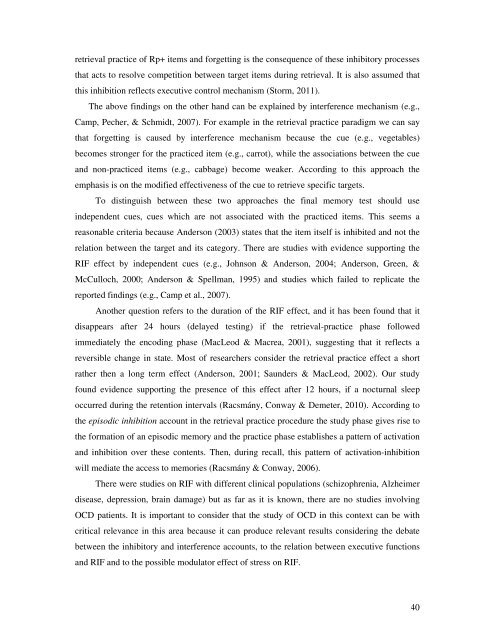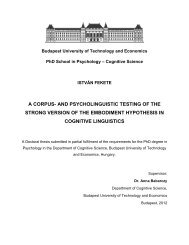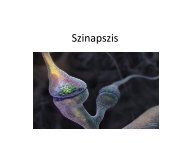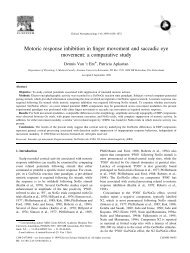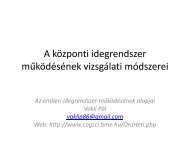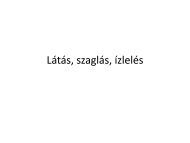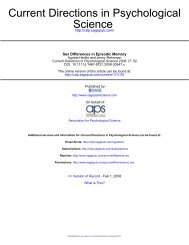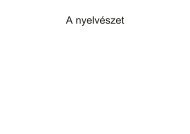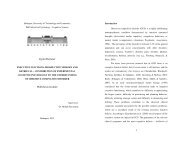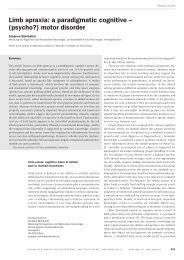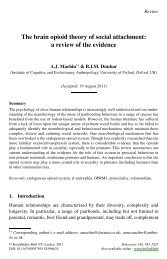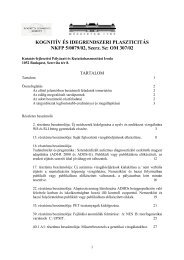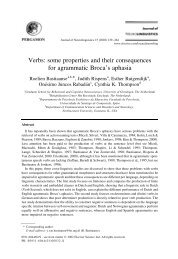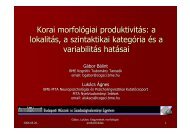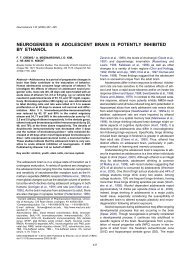Gyula Demeter
Gyula Demeter
Gyula Demeter
You also want an ePaper? Increase the reach of your titles
YUMPU automatically turns print PDFs into web optimized ePapers that Google loves.
etrieval practice of Rp+ items and forgetting is the consequence of these inhibitory processes<br />
that acts to resolve competition between target items during retrieval. It is also assumed that<br />
this inhibition reflects executive control mechanism (Storm, 2011).<br />
The above findings on the other hand can be explained by interference mechanism (e.g.,<br />
Camp, Pecher, & Schmidt, 2007). For example in the retrieval practice paradigm we can say<br />
that forgetting is caused by interference mechanism because the cue (e.g., vegetables)<br />
becomes stronger for the practiced item (e.g., carrot), while the associations between the cue<br />
and non-practiced items (e.g., cabbage) become weaker. According to this approach the<br />
emphasis is on the modified effectiveness of the cue to retrieve specific targets.<br />
To distinguish between these two approaches the final memory test should use<br />
independent cues, cues which are not associated with the practiced items. This seems a<br />
reasonable criteria because Anderson (2003) states that the item itself is inhibited and not the<br />
relation between the target and its category. There are studies with evidence supporting the<br />
RIF effect by independent cues (e.g., Johnson & Anderson, 2004; Anderson, Green, &<br />
McCulloch, 2000; Anderson & Spellman, 1995) and studies which failed to replicate the<br />
reported findings (e.g., Camp et al., 2007).<br />
Another question refers to the duration of the RIF effect, and it has been found that it<br />
disappears after 24 hours (delayed testing) if the retrieval-practice phase followed<br />
immediately the encoding phase (MacLeod & Macrea, 2001), suggesting that it reflects a<br />
reversible change in state. Most of researchers consider the retrieval practice effect a short<br />
rather then a long term effect (Anderson, 2001; Saunders & MacLeod, 2002). Our study<br />
found evidence supporting the presence of this effect after 12 hours, if a nocturnal sleep<br />
occurred during the retention intervals (Racsmány, Conway & <strong>Demeter</strong>, 2010). According to<br />
the episodic inhibition account in the retrieval practice procedure the study phase gives rise to<br />
the formation of an episodic memory and the practice phase establishes a pattern of activation<br />
and inhibition over these contents. Then, during recall, this pattern of activation-inhibition<br />
will mediate the access to memories (Racsmány & Conway, 2006).<br />
There were studies on RIF with different clinical populations (schizophrenia, Alzheimer<br />
disease, depression, brain damage) but as far as it is known, there are no studies involving<br />
OCD patients. It is important to consider that the study of OCD in this context can be with<br />
critical relevance in this area because it can produce relevant results considering the debate<br />
between the inhibitory and interference accounts, to the relation between executive functions<br />
and RIF and to the possible modulator effect of stress on RIF.<br />
40


